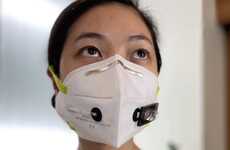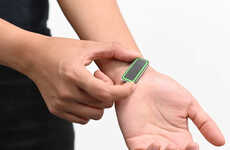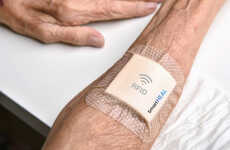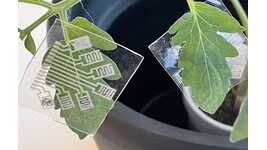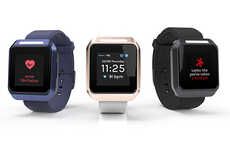Kernel of Life is Designed to Diagnose Diseases in Rural Areas
Michael Hines — December 3, 2013 — Lifestyle
References: fuseproject & dezeen
Kernel of Life is designed to leverage the power of smartphones and the cloud to let those in rural areas test themselves for diseases. Created by the San Francisco-based Fuseproject, Kernel of Life is designed to test for disease in four different ways: breath, saliva, blood and urine. The device sends the results to your phone via Bluetooth. Your results can be sent to a remote doctor who can provide treatment advice, in addition to a diagnosis.
Kernel of Life is primarily designed to treat illnesses in the developing world, such as malaria. The pad is divided into four quadrants (for the four different sample types) and, when closed, a built-in sterilizer cleans the test pads. Fuseproject says that the technology to build Kernel of Life is available now, but that it's too expensive for mass production. However, costs are expected to drop precipitously in around five to 10 years, making Kernel of Life a concept that could very well become reality sooner rather than later.
Kernel of Life is primarily designed to treat illnesses in the developing world, such as malaria. The pad is divided into four quadrants (for the four different sample types) and, when closed, a built-in sterilizer cleans the test pads. Fuseproject says that the technology to build Kernel of Life is available now, but that it's too expensive for mass production. However, costs are expected to drop precipitously in around five to 10 years, making Kernel of Life a concept that could very well become reality sooner rather than later.
Trend Themes
1. Wearable Disease Detection - Opportunities for wearable devices that leverage smartphones and cloud technology to diagnose diseases in remote areas.
2. Remote Treatment - Disruptive potential for remote doctors to provide treatment advice and diagnosis using test results sent via Bluetooth from wearable devices.
3. Affordable Healthcare - Potential for affordable healthcare in developing countries through the use of cost-effective wearable disease detection technology.
Industry Implications
1. Wearable Technology - Wearable technology companies can develop affordable devices that allow remote disease detection in rural areas using smartphones and the cloud.
2. Telemedicine - Telemedicine companies can leverage wearable devices to provide remote diagnosis and treatment recommendations using Bluetooth technology.
3. Healthcare - Healthcare providers can adopt affordable wearable devices to provide disease detection and expand access to healthcare in underserved areas.
2.3
Score
Popularity
Activity
Freshness
